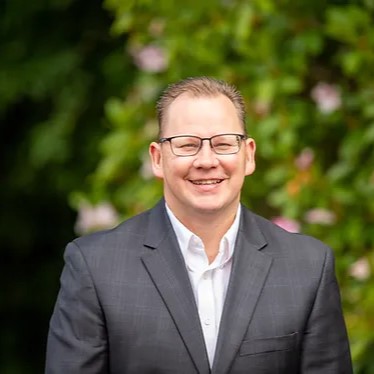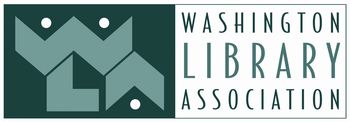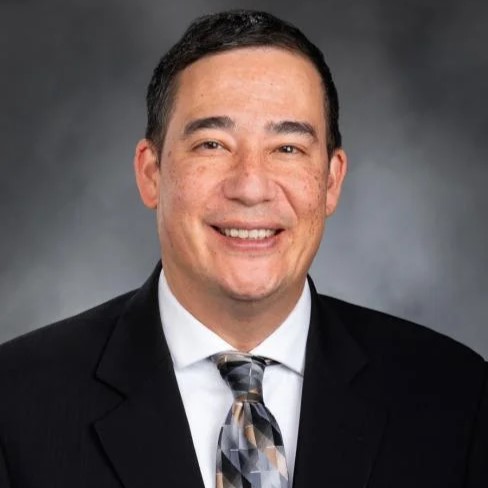- Home
- About
- Join
- Groups
- Divisions
- Sections
- Section Chair Roster
- CAYAS (Children & Young Adult Services)
- CLAWS (College Libraries Across Washington State)
- IFS (Intellectual Freedom Section)
- LISS (Library and Information Student Section)
- SAIL (Serving Adults in Libraries)
- SRRT (Social Responsibilities Round Table)
- WALE (Washington Library Employees)
- WALT (Washington Library Trainers)
- WLFFTA (Washington Library Friends, Foundations, Trustees & Advocates)
- Committees
- Advocacy Committee
- Alki Editorial Committee
- Conference Committee
- Finance Committee
- Grants and Partnerships
- Legislative Committee
- Marketing Committee
- Member Services Committee
- Professional Development Committee
- OTTER Book Award Committee
- Sasquatch Book Award Committee
- Towner Book Award Committee
- WCCPBA Committee
- Advocacy
- Support
- Resources
- Conferences & Events
- Awards & Scholarships
2024 State Executive Candidate StatementsWA Voting Information | Register to Vote | Find Your District State Senate Candidate Statements | State House Candidate Statements Candidates for the Governor and Secretary of State Positions were asked to answer the following questions for their candidate statement:
Candidates for the Superintendent of Public Instruction position were asked to answer the following questions for their candidate statement:
Thank you to all of the 2024 WA Elections Candidates who participated in our Library Advocacy Survey! Governor Candidate StatementsBob Ferguson | Dave Reichart Responses to the WLA survey from Bob Ferguson and Dave Reichart were not provided. Superintendent of Public Instruction Candidate StatementDavid Olson  Are you aware that a Teacher-Librarian is a certificated teacher with specific training in how to run a quality school-library program?
Yes; My budget request to the Governor and the Legislature aims to FULLY fund basic education so districts will stop cutting core services like library services and content areas like the arts.
Are you aware of the significant benefits of quality school library programs and teacher-librarians for student learning and achievement? Yes; Librarians remain one of our best hopes for combatting mis-and dis-information. It’s essential we fund schools amply to provide library services at every level in every building. How would you, as State Superintendent of Public Instruction, help increase student access to quality school library programs with qualified teacher-librarians? It begins by fully funding our schools to the Court’s expectation, followed by a clearer definition of basic education that is inclusive of comprehensive library services for every grade band. With full funding, we can push legislation that ensures every school is staffed with a qualified teacher-librarian. What steps would you take to ensure equitable access to digital technology and information? Ample funding is essential. We got the Legislature immediately after the pandemic to add money to basic education to allow for each student to have access to devices at school. However, this is not enough. The Legislature needs to ensure broadband access in every community with federal and state funds. We also have to remain committed to teaching students with authentic learning standards the strengths and weaknesses of digital technology, platforms, and various forms of media. It’s not enough to equip students, and get them access - we have to teach them about the opportunity and the risks with more intention. Would you support a position at OSPI to oversee and support quality school library programs with teacher-librarians? (Y/N Answer) Yes; The Legislature has never funded this, but we have committed some agency core resources to this effort and we will have at least one person assigned more directly to support teacher-librarians. Are you willing to help ensure a dual pathway so people who need a master’s degree in library sciences and their teaching credential can become a teacher-librarian in a shorter period of time? Yes, I support multiple routes for folks to become teacher-librarians, as long as they get high quality training and mentorship. I also believe teacher-librarians need to be fully represented in the cert. bargaining units so they benefit from any and all benefit and compensation enhancements. How would you address attempts to ban books, specifically in school libraries? This OSPI office, despite some groups who want us to ban books, should always stand for local control on this issue and never banning books or instructional materials. I do not support banning books and talk about this issue publicly on the campaign trail and in my official capacity as Superintendent. Most districts have book challenge processes, but the ultimate decision should be left to professional teacher-librarians with the expertise of knowing the learning standards, age-appropriate development, and student civil rights. I am very clear that I do not want Moms for Liberty or any other group bringing ideology to this question. I trust professional educators! Secretary of State Candidate StatementDale Whitaker Steve Hobbs
What role do you envision public libraries playing in improving the lives of your constituents, and how will you ensure they are adequately funded and supported? What connection do you see between libraries and informed citizens, healthy democracies, and the dissemination of accurate information within Washington state? How will you promote digital equity and ensure that libraries receive funding to close the digital divide, considering their decades-long experience in digital work? How will you work to increase student access to strong school library programs staffed by qualified Teacher-Librarians? Libraries continue to see decreased funding for collections especially in rural and underserved areas. Presently, the state does not play any role in providing funds to public libraries. Would you support the creation of a state fund to provide money for public libraries’ collections? |

 How have you used and supported libraries in your personal and professional experience?
How have you used and supported libraries in your personal and professional experience?